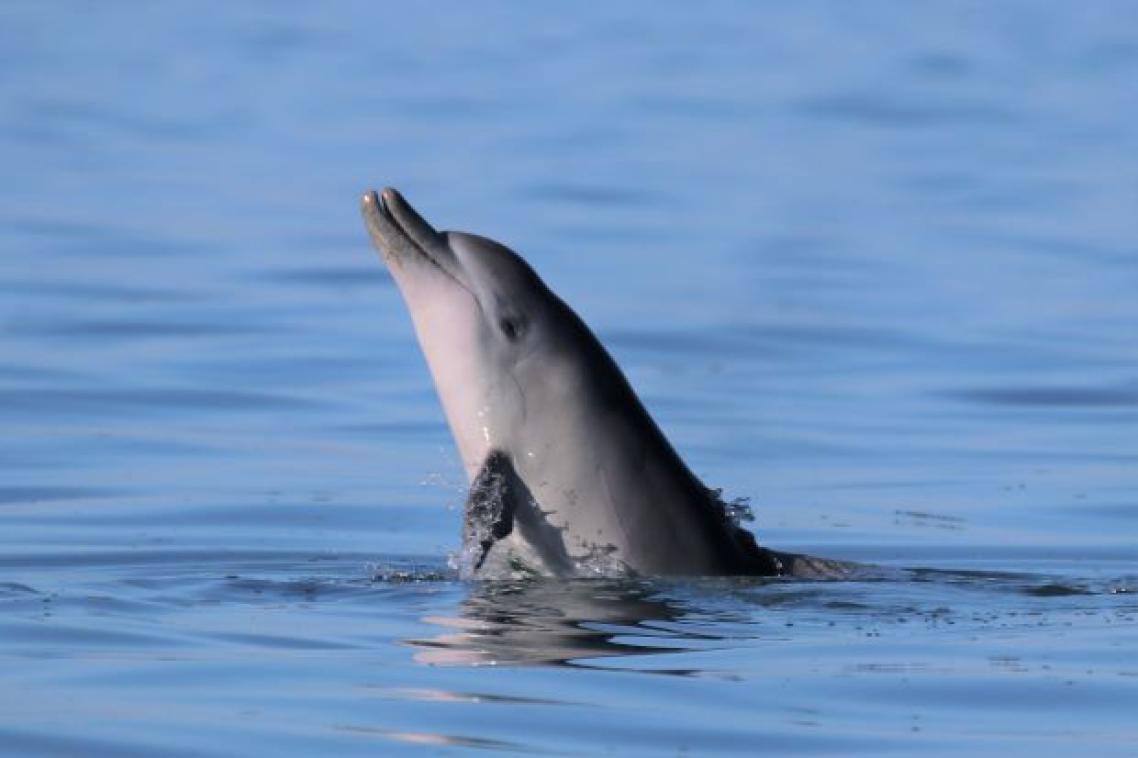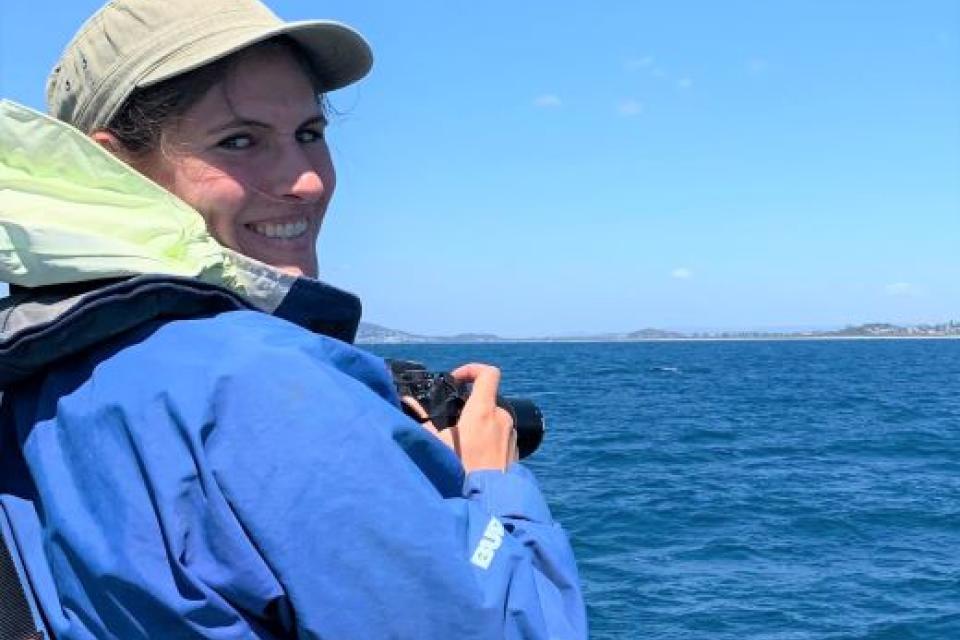Begging dolphins prompt calls to reform recreational fishing

University of Queensland researchers say bottlenose dolphins in Moreton Bay off Brisbane could be teaching other dolphins to ‘beg’ for food from recreational fishers, with the behaviour creating short and long-term risks.
Dr Léonie Huijser from UQ’s School of Veterinary Science made the surprise discovery as she investigated the social structure of Moreton Bay’s population of Indo-Pacific bottlenose dolphins for her PhD thesis.
“Within the dolphins’ social network, I found a cluster which would consistently patrol moored boats, waiting for recreational fishers to illegally toss them discarded bait or catches,” Dr Huijser said.
“Fishing is popular in the bay and it seems some dolphins have learnt to exploit it.”

“Dolphins learn behaviour from their peers,” Dr Huijser said.
“If these ‘beggar’ dolphins start to associate with ‘non-beggar’ dolphins, the behaviour may spread rapidly, making it a population-wide problem.”
Pods of dolphins displaying these behaviours have also been sighted off Bribie Island and North Stradbroke Island.
"Some of the dolphins who boldly approach boats have evidence of propeller strike and fishing line entanglement,” Dr Huijser said.
“During one of my first fieldwork days near North Stradbroke Island, a dolphin surfaced next to our boat but disappeared once it realised we weren’t going to feed it.
“Its fin had been badly mangled previously, indicating it may have been caught up in a line.”
Professor Michael Noad from supervised Dr Huijser’s research project.
He said her findings show how adaptable bottlenose dolphins were and how this influenced their social structures.
“Not all adaptations are positive and begging is an example of an adaptive strategy that may have short-term gain but long-term risks,” Professor Noad said.
“Dolphins risk becoming reliant on donated fish, which is like junk food to them – quick and easy, but unhealthy.
“It may lead to food poisoning or nutritional imbalances.”
Professor Noad said better policing of illegal dolphin feeding in Moreton Bay was needed.
“Dr Huijser’s findings should be used by wildlife rangers to increase awareness through a public education program around the potential negative effects of dolphin feeding,” he said.
Dr Huijser is planning further surveys to inform authorities about ‘begging hotspots’.
The thesis has been published on UQ Library’s eSpace.
(Image left: Dr Huijser on board her research vessel).
Media contacts
Dr Léonie Huijser
l.huijser@uq.edu.au
UQ Communications
communications@uq.edu.au
+61 429 056 139
Related articles

UQ experts recognised for national impact

Anyone can be a hacker with AI – so what does that mean for the cyber defence industry?
Media contact
UQ Communications
communications@uq.edu.au
+61 429 056 139
